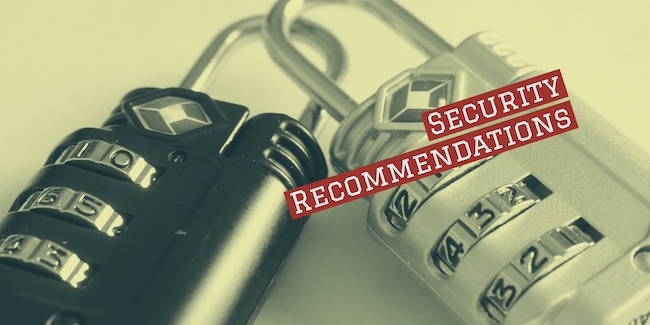Cyber security has become something of a buzzword in recent years. It refers to the security measures people and businesses take to protect their online assets and information from hackers and cyber criminals.
It is very much a growth sector because as the knowledge, tools, and resources of the online bad guys have grown, so those seeking to stop them have to grow too. Long gone are the days when a simple bit of anti-virus software and a firewall is sufficient to protect yourself online.
Certainly these tools are still essential for every computer, but simple tools are but a small part of the cyber security arsenal. Nowadays, there are a whole host of different online security apps and software programs available to help with the cyber security needs for both personal and business computers and mobile.
It is important not to underestimate the size of the cyber security challenge, either. There is a wealth of data out there illustrating the scale of the problem the industry is tackling.
Looking at just one of the sites trying to help with this online issue, the Symantec 2016 Internet Security Threat Report reports that in 2015 half a billion online personal records were lost or stolen, three quarters of websites contained vulnerabilities of one kind or another, and the use of ransomware — the latest trend in cyber attacks — rose by 35 percent.
This is just a snapshot of the problem that is used here to illustrate why it is so important that every online user takes steps to protect themselves against cyber attack online.
And, I do mean every user. Too many users think, “well I don’t do much online so I don’t need to go overboard in my security precautions.”
You do need to take those precautions to protect yourself. I’ll say again, “yes, you do need to do this.” Even something as simple as online banking and online shopping offers these hackers a chance to seize your personal financial information and potentially drain your accounts. You are as appealing a target for them as anyone else online, especially if you make the task easy for them.
What some people don’t realize is that many hackers have produced software that trolls all day and all night for vulnerable sites, vulnerable computers and mobile. Don’t let this susceptible person be you.
Table of Contents
ToggleThese are my 3 top tips to cyber secure your finances online:
1. Secure your Online Bank Account:
If you do online banking, be sure to take all the relevant steps to protect your account details from hackers.
This means several things. Ensure your account uses a secure password with a mix of small letters, capital letters, numbers, and symbols. Make sure the device you are logging into has a high quality anti-virus and firewall software installed, and that this software has the latest updates installed.
You should also be sure to use a VPN when logging on. A VPN encrypts all of your online traffic, encoding it to make it all but impossible for hackers to get into. It also helps you to hide your location by changing your IP Address, something which has the additional benefit of letting you access geo-restricted content and evade online censorship.
Using these products in conjunction will help you to use online banking safely and securely.
2. Be Careful Online Shopping:
If you like to indulge in some online shopping, especially at this time of year, be cautious. Only use sites which offer the https protocol (at the start of the site address) and never enter payment details unless the site has a padlock symbol to indicate that it is secure.
At this time of year, plenty of hackers are targeting retail sites and also setting up proxy sites to try and fool people into handing over their credit card details. Many of these are very sophisticated, so be on your guard and don’t fall into any unnecessary traps.
3. Be cautious with mobile banking and apps:
Remarkably, many people still labor under the illusion that using online services on their smartphones or tablets is somehow more secure. It isn’t. In fact, after the sharp growth in the use of mobile devices in recent years, hackers are actually targeting these platforms much more than the traditional and conventional ones (such as computers, credit cards, etc.). Mobile is becoming the new hackers dream.
Always be sure to download online shopping and banking apps from a verifiable and safe site or App Store. Be sure that all the software mentioned in tip one, including VPNs, are on your mobile device as well as your computer. This software serves the same purpose for mobile as they do for your computer, and are just as important, if not more so.
Remember, when putting your credit card or bank details into a smartphone, it needs to be every bit as secure as a well-protected computer if you don’t want to risk becoming another cyber crime statistic next year.













